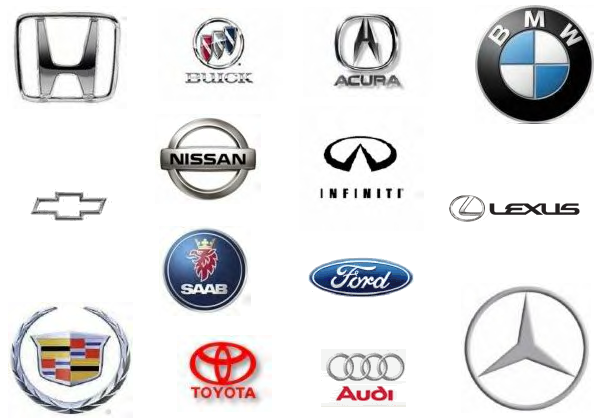In the fiercely competitive landscape of the automotive industry, Automotive Competitors vie for market dominance and customer loyalty. From traditional automakers with a rich legacy to tech giants disrupting the sector, the competition is intense and dynamic. In this article, we explore some of the top competitors in the automotive industry, their unique strengths, and the strategies that have propelled them to the forefront of the market.

1. Tesla
Tesla stands as a trailblazer in the automotive world, pioneering electric mobility and sustainable transportation. With its cutting-edge electric vehicles (EVs) and innovative battery technology, Tesla has revolutionized the way the world views electric cars. The Automotive Competitors company’s strong emphasis on autonomous driving capabilities and over-the-air updates has further solidified its position as a leader in the industry. Tesla’s charismatic CEO, Elon Musk, and its strong brand identity have also contributed significantly to its success.
2. Toyota
Toyota has established itself as one of the most prominent and reliable automakers globally. With a diverse portfolio of vehicles ranging from fuel-efficient hybrids to rugged SUVs, Toyota caters to a wide spectrum of consumers. The Automotive Competitors company’s commitment to quality, durability, and continuous improvement through the Toyota Production System has earned it a stellar reputation. Additionally, Toyota’s investments in research and development, particularly in electric and hydrogen fuel cell technology, demonstrate its forward-thinking approach.
3. Volkswagen Group
Volkswagen Group is a powerhouse in the automotive industry, boasting an extensive portfolio of brands, including Volkswagen, Audi, Porsche, and more. The group’s focus on engineering excellence, performance, and premium design has garnered a dedicated customer base worldwide. Automotive Competitors Volkswagen’s ambitious electrification plans, showcased by models like the ID.3 and ID.4, reflect its commitment to transitioning to sustainable mobility.
4. General Motors (GM)
General Motors is a stalwart in the automotive arena, with a rich history spanning over a century. The Automotive Competitors company’s diverse range of brands, including Chevrolet, Cadillac, and GMC, cater to various market segments. GM’s foray into electric vehicles with the Chevrolet Bolt EV and plans for future electric models align with the industry’s shift towards electrification. Additionally, General Motors’ advancements in autonomous driving technology position it as a contender in the race for self-driving vehicles.
5. Ford
Ford is an iconic American automaker known for its legacy of producing rugged trucks and powerful performance cars. The company’s strong brand loyalty and innovative approach to vehicle design have contributed to its success. Ford’s commitment to electric mobility is evident through its all-electric Mustang Mach-E SUV and forthcoming electric models. The company’s investments in advanced technologies, including connectivity and smart mobility solutions, demonstrate its efforts to remain competitive in a rapidly evolving market.
6. Nissan
Nissan is a prominent player in the automotive industry, with a global presence and a diverse lineup of vehicles. Known for its popular electric car, the Nissan LEAF, the company has made significant strides in promoting sustainable transportation. Nissan’s focus on intelligent mobility, exemplified by its ProPILOT Assist and e-POWER technology, showcases its dedication to enhancing safety and efficiency.
7. Hyundai Motor Group
Hyundai Motor Group encompasses both the Hyundai and Kia brands, collectively making it one of the largest automotive groups globally. Hyundai is renowned for its value-driven offerings, while Kia focuses on stylish designs and innovative features. The group’s investments in electric vehicles and autonomous driving technology reflect its commitment to future mobility trends.
8. BMW Group
BMW Group is synonymous with luxury and high-performance vehicles. The BMW brand is known for its sporty driving dynamics, while MINI and Rolls-Royce, also under the group’s umbrella, cater to different segments of the market. BMW’s early entry into electric mobility with the i3 and i8 models, along with its forthcoming electric models, showcases its dedication to sustainable mobility.
9. Honda
Honda is a respected automaker with a strong focus on engineering and reliability. The company’s diverse lineup includes cars, motorcycles, and power equipment. Honda’s commitment to environmental stewardship is evident through its hybrid models and investments in fuel cell technology. The brand’s reputation for quality and fuel efficiency has won it a loyal customer base worldwide.
10. Daimler AG
Daimler AG, the parent company of Mercedes-Benz, is synonymous with luxury and premium vehicles. Mercedes-Benz is renowned for its elegant designs, cutting-edge technology, and exceptional performance. The company’s push towards electric mobility is evident with the introduction of its EQ lineup of electric vehicles, signaling its commitment to sustainable luxury.
Conclusion
The automotive industry is a fiercely competitive arena, with top Automotive Competitors vying for market leadership and customer loyalty. Tesla’s groundbreaking innovations in electric mobility, Toyota’s reliability and commitment to sustainability, and Volkswagen Group’s diverse portfolio exemplify the dynamic nature of competition in the market. General Motors’ advancements in autonomous driving, Ford’s iconic legacy, and Nissan’s focus on intelligent mobility reflect each company’s unique strengths and market strategies.
Hyundai Motor Group’s global presence, BMW Group’s luxury offerings, and Honda’s engineering excellence showcase the diverse approaches to success in the automotive world. Lastly, Daimler AG’s luxurious Mercedes-Benz brand stands as a symbol of elegance and cutting-edge technology. As the automotive industry continues to evolve, these top competitors will undoubtedly shape the future of mobility and transportation worldwide.








